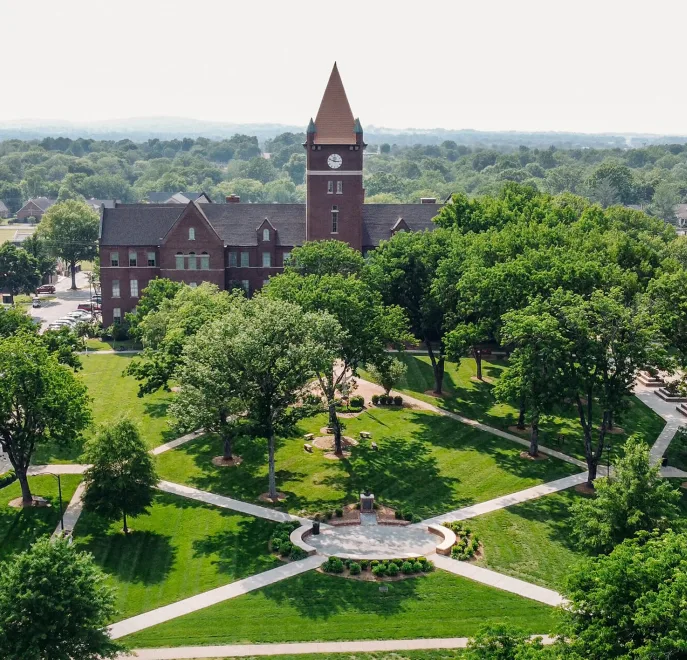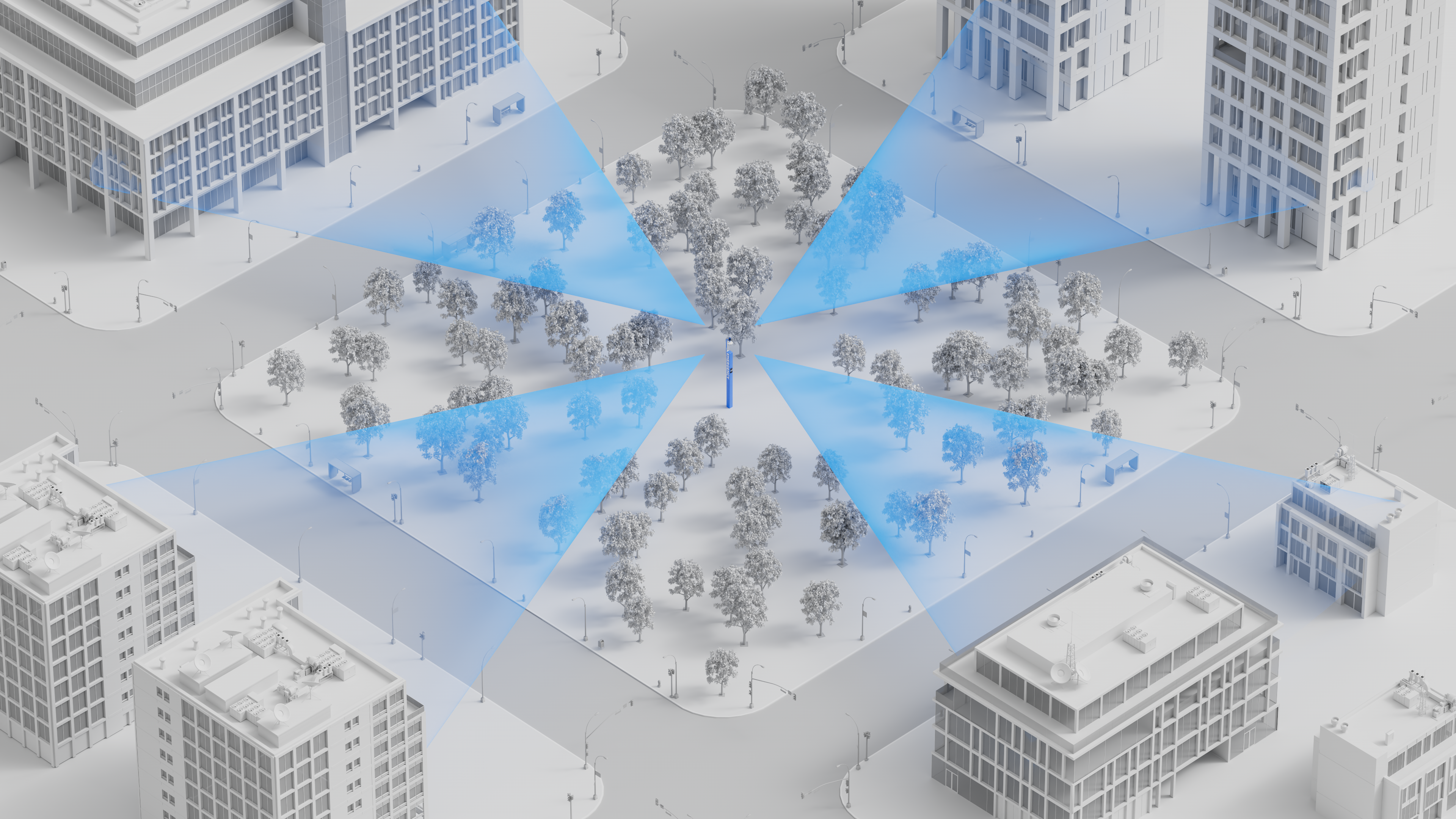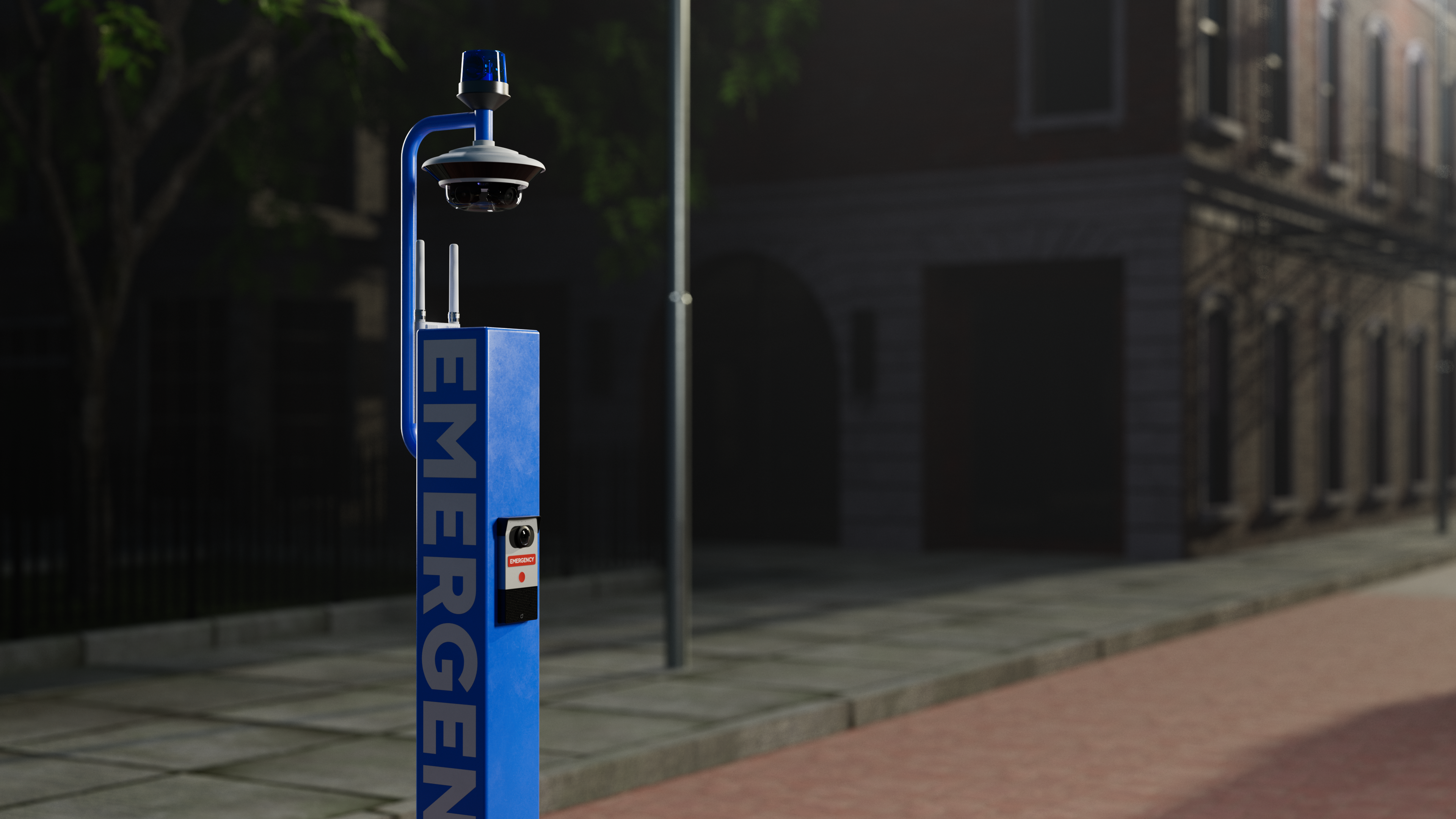Cumberland University

Background
Cumberland University, a private liberal arts institution in Lebanon, Tennessee, was founded in 1842 and holds a unique place in American history as one of the oldest in the South. Known for its academic excellence and strong community impact, Cumberland offers more than 80 majors, minors, and graduate programs designed to prepare students for meaningful careers.
The health and safety of students, faculty, and staff is central to the university’s mission. To support this, Cumberland has invested in modernizing its campus safety and security infrastructure. For the IT and Security team, this includes managing the university’s network of physical security devices—among them, campus blue light stations.
Blue light stations are a visible reminder that help is always within reach, offering both practical emergency support and peace of mind for students and parents alike. “If I’m a student and something happens and I can’t reach my phone, I know I can run to a blue light and get immediate help,” explains Justin Miller, System Security Technician. “They create a real sense of security just by being there.”
The Challenge
Cumberland’s legacy blue light stations had become increasingly unreliable due to an outdated ATA and phone system. “Somewhere in that line of connection was a breakage point,” Miller explains. “Our old ATAs and call manager stopped working, so calls weren’t coming through properly.”
With the original manufacturer no longer in business, repairs and replacements were impossible. The legacy system also lacked modern features such as video context, failover routing, and proactive health monitoring, while testing required time-intensive manual walkarounds.
A Modern Blue Light Solution with Verkada
Cumberland retrofitted blue light stations across their dorm entrances and high-traffic areas with Verkada intercoms and multisensor cameras, transforming them into multifunctional security hubs.
Integrated video context & failover call routing:
When a student presses the emergency call button, the call will automatically route to the security team’s SIP phone as well as their Command instance. “Security staff can immediately see footage from the intercom camera as well as the overhead multisensor camera to assess the situation and determine if it needs to be escalated to local police department,” explains Miller. “We couldn’t do this with our old ATA system.”
Additionally, calls route automatically to a secondary number in case the first receiver is unavailable.
Visual coverage and blind-spot elimination:
Beyond emergency calling, the security team has found the greatest value in gaining a new set of eyes into previously unseen areas of campus. “We don’t typically have cameras where these blue light stations are,” says Miller. “Being able to add another camera view helps us eliminate blindspots and catch everything happening on campus.”

Remote troubleshooting:
As the IT and Security teams formalize a new process around regular testing, they are keen to leverage the intercom’s remote troubleshooting functionality. “With blue light stations spread across campus, this saves us valuable time—we no longer have to walk to each one just to confirm it's working.” Their teams can also receive automated alerts in case of SIP failures, offline intercoms, or camera tampering to proactively address performance issues.
Results and Impact
By modernizing its emergency infrastructure with Verkada, Cumberland has achieved:
Seconds-to-response times for blue light calls with instant video context.
Reduced maintenance workload via remote call testing and health alerts.
Expanded visibility across key blue light locations, eliminating blind spots.
Failsafe reliability with automated SIP failover for emergency calls.
“Our security team loves Verkada. The intercom and camera integrations into our blue light stations now give us another set of eyes in places we couldn’t see before. We’ve gotten great reviews from our security team about the new calling experience, and the addition of cameras to these stations has been a huge improvement for both response times and overall safety,” said Miller.

Melissa Page, Director of IT and Security, added, “Functioning emergency systems are critical to maintaining our zero-incident record over the past two years. If they fail, it impacts not just safety but also our reputation.”
Looking Ahead
The university is also piloting Verkada Access Control in its Fine Arts Building, using the deployment to validate door reader performance and evaluate centralized management. The successful test run has demonstrated how simple the system is to manage, positioning it as a precursor for wider rollout across additional buildings. Cumberland is also exploring integrated panic alerts tied to cameras for immediate situational awareness, enabling security teams to instantly view live video context when a panic button is pressed.
By continuing to test, refine, and expand its Verkada ecosystem, Cumberland is building a unified, proactive approach to campus safety. “Every feature we add—whether it’s intercoms, cameras, or access control—integrates seamlessly. It makes it simple for IT and security to stay ahead of potential issues while creating a safer environment for students and staff,” Page concluded.